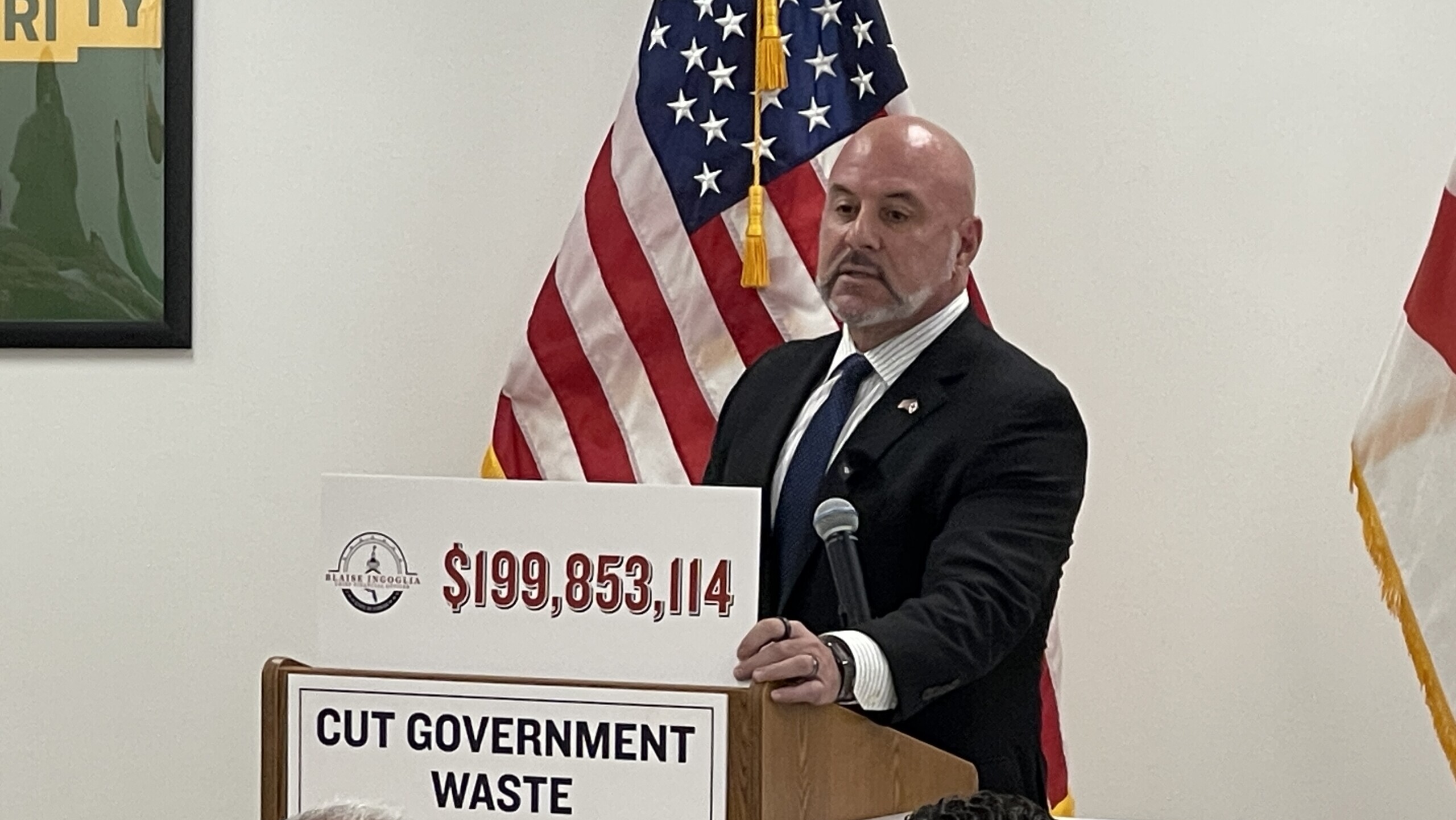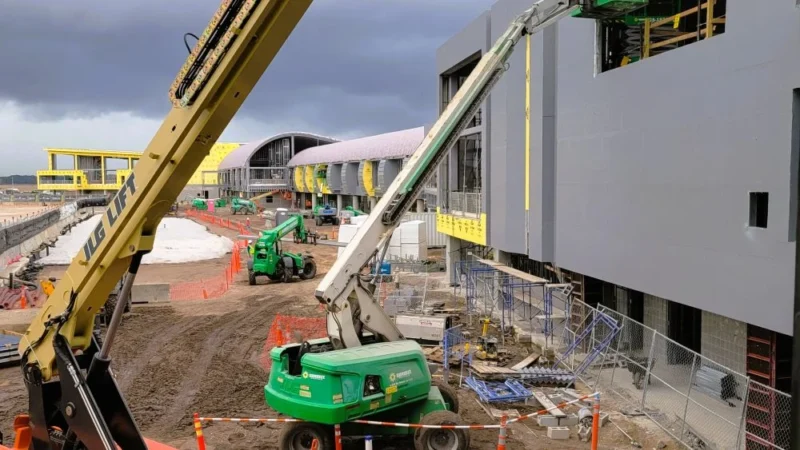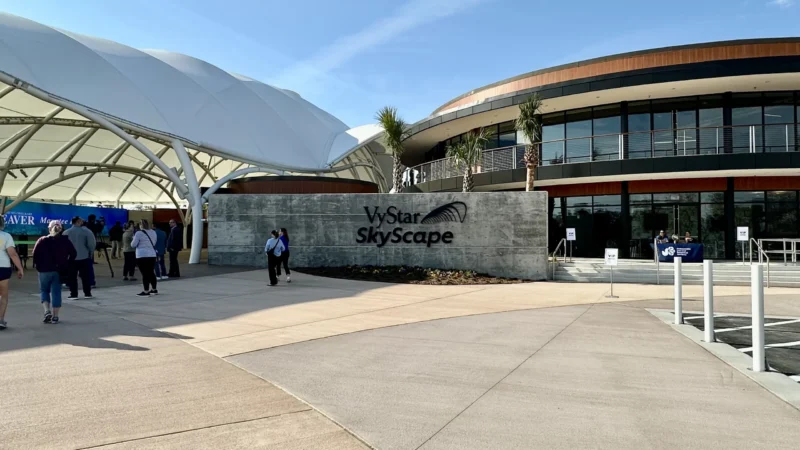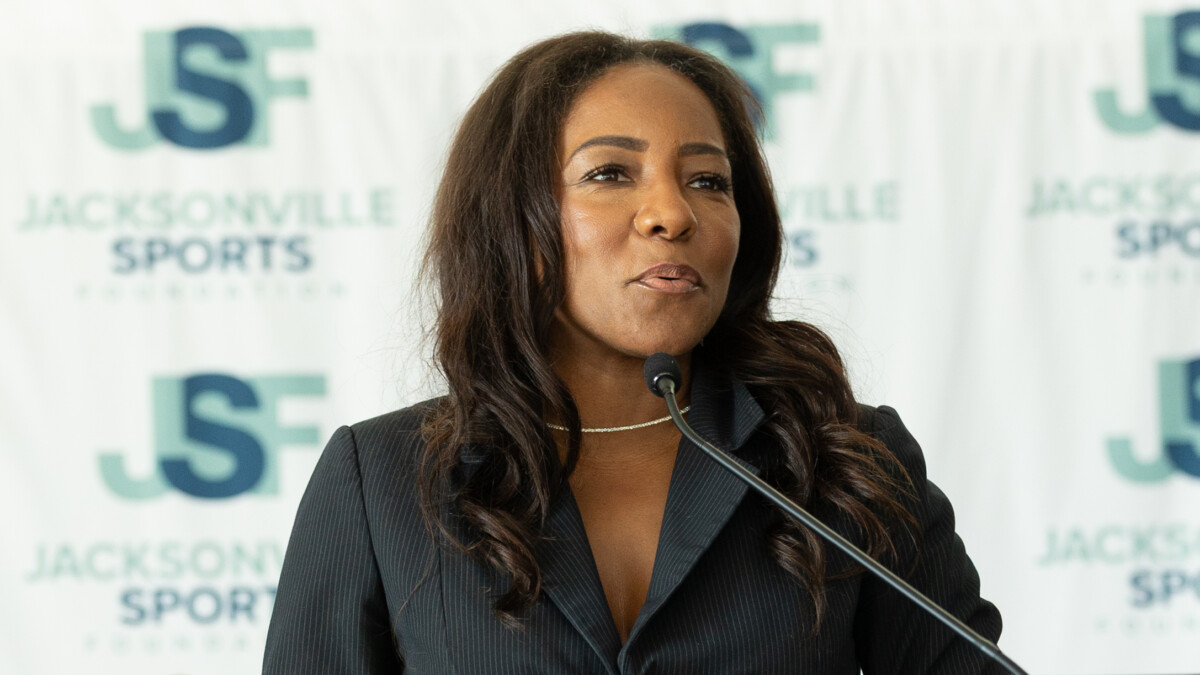Less than a week before City Council is supposed to pass next year’s city budget, Florida’s chief financial officer accused Jacksonville leaders of overspending by nearly $200 million.
CFO Blaise Ingoglia on Wednesday outlined what he called “high-level spending information” from his Florida DOGE team’s audit of the city’s finances, which began with in-person data collection in August at City Hall.
Ingoglia, appearing at the Americans for Prosperity Florida chapter office in Jacksonville, did not provide specific programs that his DOGE team is characterizing’s as overspending, but he criticized the growth in Jacksonville’s spending over the last five budget years, starting in 2019, relative to its population increase.
Ingoglia said a full DOGE report would be released later this month or in October, but he claimed the city’s proposed tax millage rate can be reduced by 1.19-mills and still deliver city services.
That’s well beyond the ⅛-mill reduction that the Republican-controlled council Finance Committee has pushed and Mayor Donna Deegan’s desire to keep the rate flat from last year.
“I’m sorry, the big government apologists can go out there and try to sizzle their way around this, and they can try to deflect all they want. But the reality is, this number is the amount that you are all being overtaxed here in the city of Jacksonville,” Ingoglia said.
The announcement met quick rebuke from the mayor, who’s in the middle of series of town hall meetings throughout Duval County defending her proposed tax rate and budget priorities.
“We already maintain the lowest property tax rate of any major city in Florida,” Deegan said in a written statement Wednesday after Ingoglia’s news conference. “Our fiscal responsibility is recognized by the leading ratings agencies, and our investments in public safety and infrastructure are creating a high quality of life, which is the reason we have the fastest growing population in Florida.
“Our police and fire unions, business community, and working families across the city all agree that Jacksonville’s millage rate should remain where it is, so that we can continue to invest in our people,” she said.
Florida DOGE tour
Ingoglia’s event in Jacksonville followed an announcement Monday in Orange County where Ingoglia similarly called $190 million of that local government’s spending “excessive and wasteful.” Orange County Mayor Jerry Demings characterized Ingoglia’s comments as “fuzzy” math, according to reporting from Central Florida Public Media.
The state CFO has been leading the Florida DOGE’s efforts since February with a goal to pressure local governments to lower property tax levies and eliminate what Ingoglia and Gov. Ron DeSantis consider “fraud, waste and abuse” in city and county spending.
The DOGE effort is also meant to be a proving ground for DeSantis’s push to eliminate property taxes for homesteads in Florida.
Sorting through a stack of poster board visual aids, Ingoglia said Jacksonville’s general operating fund budget had increased by nearly $692.4 million, or 50.28%, from fiscal year 2019-2024, while the population increased by 56,605 people.
Under Deegan, the general fund has risen about $250 million from her first budget in 2023 to her $2 billion proposal this year. In the eight budgets of her predecessor, former Mayor Lenny Curry, the general operating fund budget grew by about $500 million, or 47.6%
“I’ve been very clear on this. The spending is not just a Democrat problem. This is a Democrat and a Republican problem,” Ingoglia said. “We are seeing it across all levels of government. Republicans and Democrats alike are taking this extra money and they’re expanding government.
“I actually think that a lot of elected officials don’t know exactly what the bureaucracy is doing underneath them, because they’re policymakers. They’re not administrators. So but to that point, I will tell you, looking at the budget numbers for the city of Jacksonville, and going back to the prior administration and current years to the Deegan administration, Deegan’s spending is on steroids.”
During the news conference, Ingoglia also critiqued the growth in city salaries and number of employees compared to population. He said the DOGE report, which will show 646 new employees and 23.5% in salary increases during the five-year period, will account for hires and pay raises for police officers and first responders.
In her statement, Deegan said the $270 million increase in funding for the Jacksonville Sheriff’s Office and Jacksonville Fire and Rescue Department since 2019 is “well-deserved.”
“The annual city investments for road resurfacing our 840+ square miles more than doubled during that time from $10 million to more than $26 million,” she said. “And our combined operating and emergency reserves increased by $245 million, an 89% increase.”
“While the CFO spoke many generalities about public safety, without showing the work behind his analysis, it’s unclear if his numbers include the hundreds of police officers added to our streets or the historic 22% raise that this administration negotiated for first responders,” Deegan said.
City Council’s view
Ingoglia says a 1.19-mill cut in Jacksonville would save the owner of $300,000 home about $358 per year. Deegan has consistently criticized the City Council’s proposed ⅛-mill cut as performative. She says it would save the average homeowner only about $1.56 per month but cost the city nearly $14 million in revenue, force program cuts and, in the future, risk funding for public safety.
The news conference Wednesday had an audience that included three Jacksonville City Council members who will be voting on the millage rate and $2 billion city budget next Tuesday night: Rory Diamond, Ron Salem and Finance Committee Chair Raul Arias.
Ingoglia told reporters he’s “not lobbying” the council members. But two of the council members acknowledged in interviews after the event that cutting the budget by nearly $200 million in the final days would likely not be feasible.
Arias told Jacksonville Today that the council’s ⅛-mill cut is a modest proposal but it’s “meeting down the middle.”
“We’re just trying to win on both sides — give people the services and needs that they want but also protecting the property taxpayers as well,” he said.
Diamond has been pushing a larger 1-mill cut that would drop city revenue by $100 million and save about $150 for a property owner with a $200,000 home.
Salem said he’d be open to more cuts in the future, but even the modest tax cut will be difficult to gain enough support on council.
“We’re going to have a challenge to get 10 votes to cut it by ⅛ of a mil. That’s the goal for Tuesday night,” Salem said. “As we look forward into future budgets, I’m willing to consider other future cuts, but right now, with less than a week until Tuesday, that’s my focus.”







